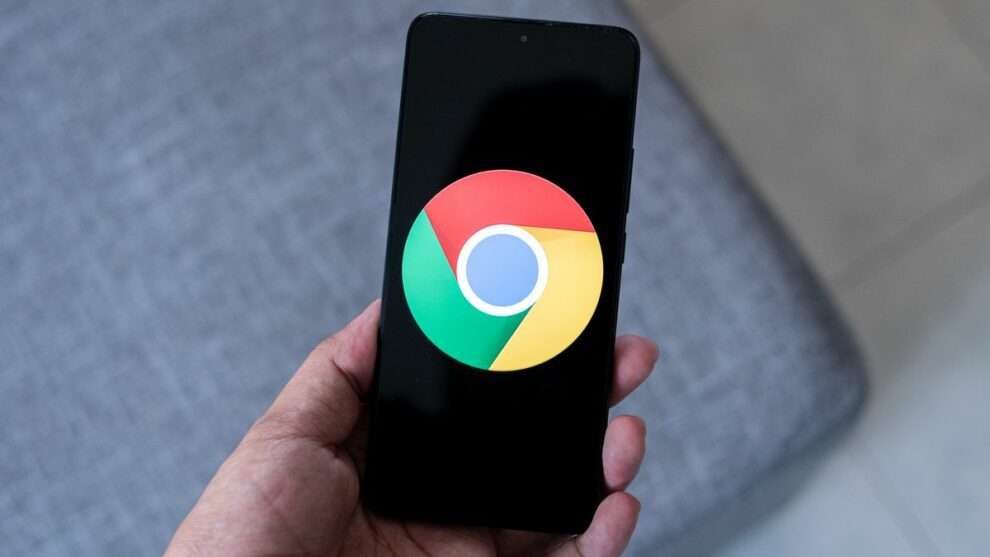Every time you search for something on Google, your activity is recorded in your search history. While this data can be useful for personalizing your search results and recommendations, it also raises questions about how much of your online behavior should be tracked and stored. Whether you’re concerned about data privacy, want to clear space for new searches, or simply prefer a cleaner slate, deleting your Google search history is a straightforward process. But why should you delete it, and how exactly do you go about doing so? Let’s explore the ins and outs of managing your search history.
Understanding Your Google Search History
Your Google search history is a record of every query you’ve entered into the search engine. This includes not only the keywords you typed but also the time and location of each search. Google uses this data to tailor its services, such as providing personalized search results, recommending content, and offering location-based suggestions. While this functionality can enhance your online experience, it also means that Google retains a detailed log of your browsing habits.
Your search history is tied to your Google account, which is why signing in to your account is essential for accessing it. If you’re signed out or using incognito mode, your searches won’t be saved to your account. However, even if you’re signed out, your IP address and other metadata can still be tracked, meaning your activity isn’t entirely anonymous.
Why Deleting Your Search History Matters
Deleting your Google search history isn’t just about tidying up your account—it’s about reclaiming control over your digital footprint. Here are some compelling reasons why you might want to erase your search history:
1. Protecting Your Privacy
Your search history paints a detailed picture of your interests, habits, and preferences. This information can be valuable to advertisers, who use it to target you with ads. While Google’s privacy policies claim that your data is anonymized and aggregated, the fact remains that your searches are stored and used for commercial purposes. Deleting your history reduces the amount of data available to third parties, giving you more control over your online presence.
2. Maintaining Anonymity
Even if you’re not explicitly sharing your searches, they can still reveal sensitive information about you. For instance, searching for health-related topics, financial advice, or personal issues could inadvertently expose your private concerns to others. Clearing your search history ensures that your online activities remain private and anonymous.
3. Freeing Up Space
Over time, your search history can accumulate a significant amount of data, especially if you conduct frequent searches. While this doesn’t directly affect your storage limits, it can clutter your account and make it harder to find specific queries later. Deleting old searches frees up mental bandwidth and keeps your account organized.
4. Preventing Accidental Sharing
If you share your device with others, your search history could inadvertently reveal information you’d rather keep private. For example, a family member or colleague might stumble upon your searches and draw conclusions about your interests or intentions. Clearing your history prevents accidental sharing and maintains your privacy.
How to Delete Your Google Search History
Deleting your Google search history is a relatively simple process. Follow these steps to remove your past searches:
Step 1: Sign In to Your Google Account
To access your search history, you must be signed into your Google account. Open your browser and navigate to myactivity.google.com . Log in using your credentials if you’re not already signed in.
Step 2: Access Your Search Activity
Once logged in, scroll down to the section labeled “Search Activity.” Here, you’ll see a chronological list of all your past searches, including keywords, timestamps, and device information. This is where you’ll manage your history.
Step 3: Delete Individual Searches
If you want to remove specific searches, hover over the entry and click the three-dot menu icon. From the dropdown, select “Remove” to delete that particular search. You can also select multiple entries by checking the boxes next to them and clicking “Remove” at the bottom of the page.
Step 4: Delete Entire Search History
If you prefer to erase your entire search history, click the “More Actions” menu at the top of the page and select “Delete activity.” You’ll then be prompted to choose a date range or delete all activity. Be cautious when choosing the latter option, as it will remove every search you’ve ever conducted on Google.
Step 5: Disable Future Tracking
To prevent Google from recording your searches in the future, navigate to the “Manage Your Google Account” settings. Under the “Data & Privacy” section, toggle off “Web & App Activity.” This will stop Google from saving your search history moving forward.
Additional Tips for Managing Your Search History
While deleting your search history is a good start, there are additional steps you can take to enhance your privacy:
1. Use Incognito Mode
Incognito mode temporarily disables search history tracking for the duration of your session. While it doesn’t completely hide your activity from your ISP or Google, it minimizes the amount of data stored in your account.
2. Clear Cookies and Cache
Regularly clearing your browser’s cookies and cache removes traces of your online activity. Most browsers allow you to do this manually or set up automatic cleaning schedules.
3. Use Private Browsing Tools
Consider using private browsing extensions or tools like DuckDuckGo, which don’t track your searches or store cookies. These alternatives provide an additional layer of privacy.
4. Review Third-Party Permissions
Check your device settings to ensure that apps and services aren’t accessing your Google account without your consent. Revoking unnecessary permissions reduces the risk of unauthorized data collection.
Addressing Common Concerns About Deleting Your Search History
Some users hesitate to delete their search history due to fear of losing personalized features. Rest assured, removing your history doesn’t disable Google’s customization capabilities. Your preferences and settings remain intact, and Google will continue to offer personalized suggestions based on your ongoing activity.
Others worry that deleting their history will make their searches less efficient. While it’s true that personalized results rely on historical data, the impact is minimal. Google’s algorithms adapt quickly to new patterns, ensuring that your searches remain relevant even after clearing your history.
The Broader Implications of Deleting Your Search History
Deleting your Google search history is a personal choice, but it also has broader implications for data privacy and consumer rights. By exercising control over your search data, you contribute to a growing movement advocating for greater transparency and accountability from tech companies. As more users demand privacy, platforms like Google may be compelled to offer more robust privacy controls and opt-out options.
Moreover, deleting your search history sends a message to advertisers and data brokers that you value your privacy. While targeted advertising is a lucrative industry, it relies on user consent and cooperation. By opting out of data collection, you reduce the incentives for companies to engage in intrusive practices.
Deleting your Google search history is a simple yet powerful step toward reclaiming control over your digital life. Whether you’re motivated by privacy concerns, a desire for anonymity, or a need for organizational clarity, clearing your search history empowers you to take charge of your online presence. By understanding how to manage your data and leveraging tools like incognito mode and third-party privacy solutions, you can protect yourself from unnecessary tracking and ensure a safer, more secure browsing experience.
As technology continues to evolve, so too will the tools and strategies for safeguarding your privacy. By staying informed and proactive, you can navigate the digital landscape with confidence, knowing that your data remains under your control. And as more people join the movement for greater privacy, the collective impact will drive meaningful change across the industry.
















Add Comment